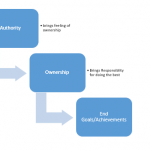Fundamental differences between special-cause variation and common-cause variation
Fundamental differences between special-cause variation and common-cause variation
Compare and contrast the fundamental differences between special-cause variation and common-cause variation. Provide one (1) business process example of each variation to support your response.
In statistics, we use variance to measure how much difference is between two pieces of data taken from two different situations. It is a measure of how varied two data sets are in respect to a reference point. There are different types of variance. For this discussion, I would focus on two types of variance i.e. common cause variance and special cause variance.
These types of variations are caused by natural phenomenon in a system. We can say that they are the inherited problems in a system that are not caused deliberately and are usually quantifiable. So we can suggest that this kind of variance may not be controllable. The system works fine and these variances pop in. For example if you are expecting a group of employees to complete a task in an average 5 hours but they take half an hour more. You would be able to live with this variance from the average 5 as you would already have predicted that due to expected natural causes, they may take more than 5 hours.
Special cause variation is cause by unexpected issues in a system. These variance may not be quantifiable like common cause variance. This type of variance may happen for the first time which may cause chaos. For example, if you have an automated process in a manufacturing plant and the computer that is running the automated process shut down due to malfunction, it would not have been something that was expected and anticipated.
Answer 2
Common-cause variation is characterized as predictable and is always active within the system. An example of common-cause variation is normal wear and tear of track springs on excavators used at constructions sites. These excavators have been used on a regular basis for quite some time; and therefore, it can be predicted that at some point parts such as track springs will need to be replaced.
On the other hand, special-cause variation is considered as unpredictable. Special-cause variation is a new presence within the system and can even be problematic. An example of a special-cause variation is the complete malfunction of all excavators being used at the construction site. Special-cause variation as well as the presence of too much common-cause variation can both result in changes within the system.





